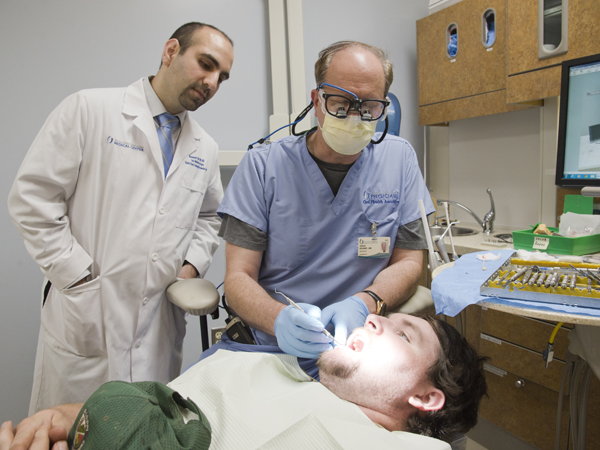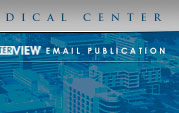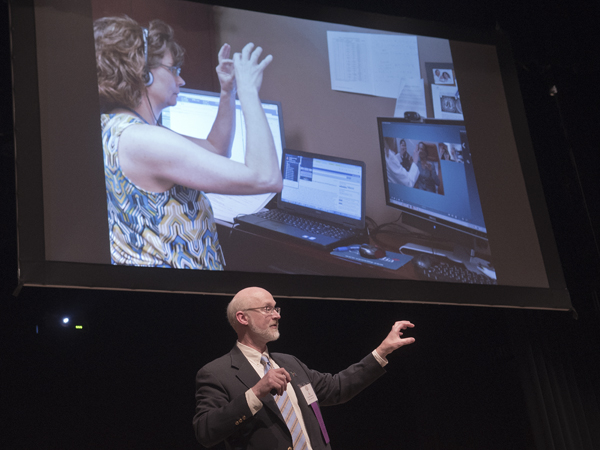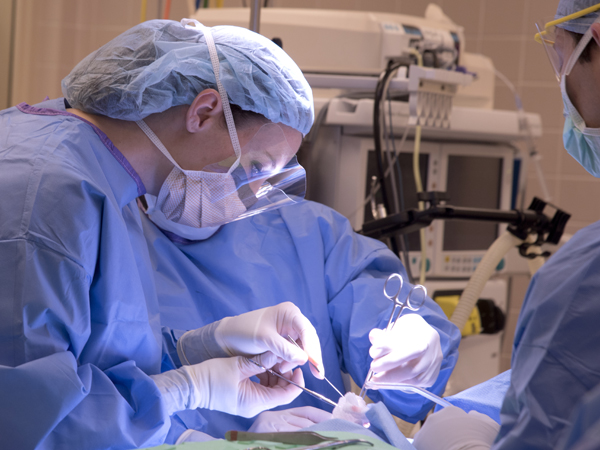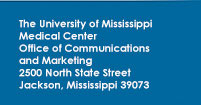|
When it comes to preventing or curing Alzheimer's disease, the promise of recent research is "like seeing a light on a distant shore," Dr. Thomas Mosley said Wednesday at a forum on the country's sixth leading cause of death. Mosley, director of UMMC's Memory Impairment and Neurodegenerative Dementia (MIND) Center, made the comparison following his address to an audience of about 200 health-care educators, administrators and care givers in Meridian at "The Many Faces of Care" - the 16th annual Conference on Alzheimer's Disease and Psychiatric Disorders in Older Adults. A nationally renowned authority on brain aging, Mosley was quoting a colleague when he described the potential to exploit the latest breakthroughs. Each step forward "provides hope," said Mosley, a professor in geriatric medicine and neurology. "It's a beacon to us, but it's still a ways off." Still, Mosley's message was mostly optimistic, as suggested by his presentation - "Mississippi Takes the Lead: Advances in Dementia Research and Technology." That optimism is based in part on MIND Center findings about the disease that afflicts 5.3 million Americans, including the 50,000 Mississippians who have been diagnosed with the only top 10 cause of death that cannot be prevented, cured or slowed. An underdiagnosed disorder that affects more women than men, Alzheimer's is a specific type of a syndrome called dementia, a general term for severe loss of memory and other mental abilities. Other conditions may also cause dementia, including stroke, Parkinson's disease and Lewy Body pathology. "Saying someone has dementia doesn't tell you anything about the underlying cause. It's like saying someone has cancer; there are many different types of cancer," Mosley said during his presentation. The MIND Center, the lead agency for a multi-center $26 million grant from the National Institutes of Health, is working with leading U.S. and European medical schools that have improved our understanding of Alzheimer's and related conditions that lead to older adults' loss of mental abilities. This work includes the Atherosclerosis Risk in Communities (ARIC) Neurocognitive Study. Among researchers' freshest conclusions is "certain changes in the brain are more common and start much earlier in life than previously believed," said Mosley, ARIC's principal investigator. Those include vascular disease and silent strokes, indicating a link between such brain changes and cardiovascular disease risk factors. Recent results also raise the specter of diabetes. As reported from the Neurocognitive Study, people with diabetes at mid-life undergo eight years of additional "cognitive aging," or decline, over a 20-year period compared to those without diabetes; this raises their risk of dementia later in life, Mosley said. This waning of mental abilities can also be sped up by high blood pressure. Relatively new advances in brain imaging technologies, Mosley said, have accelerated researchers' knowledge of Alzheimer's, enabling them to more closely, and quickly, examine the human brain, uncovering the presence of plaques, or abnormal buildup of protein, between the nerve cells - a condition believed to cause Alzheimer's. Improvements in genetic research have also been a boon, he said. In 2001, the cost to study one genome - a person's complete set of DNA - was $100 million. "Today, it's $4,000," Mosley said. Taking advantage of rapid advances in genetics, Mosley leads an international consortium of researchers with over 30 studies representing more than 100,000 research participants in the U.S. and Europe. In the past year, Mosley and his international team identified the first genetic regions related to memory loss and related cognitive abilities in non-demented older adults. Identifying these regions could lead to the development of new treatments for memory loss.
|

